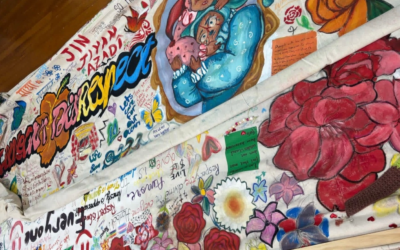Following last year’s Federal Election, the Australian Electoral Commission released statistics on voter enrolment that revealed several interesting insights. NSW recorded one of its highest numbers of voter enrolment in over a decade – with a 96 per cent of the state’s eligible population enrolled to vote as of June 30. There was also a dramatic rise in the number of university-aged voters in NSW, with an increase of almost 350,000 voters aged 18-35 when compared with the results from the 2013 Election. Similar increases nationwide resulted in university-aged voters making up 27.11 percent of the national electorate, a figure which is rising annually.
We are seeing one of the highest levels of political engagement both through the various platforms of social media and online conversation such as Facebook and Twitter. Student political clubs such as Young Labor and Resistance: The Young Socialist Alliance Club have seen increases in membership from students interested in activism.
While all this information may sound fantastic for university-aged voters when viewed on its own, the picture dramatically changes when these figures are placed within the context of the contemporary political landscape of our nation.
The reality is this: university-aged voters, whilst more politically active than any previous generation, they remain one of the least represented voices in the parliamentary system. Our society should be fostering an open dialogue between the electorate and their representatives. Instead, we have seen a series of governments (both Liberal and Labor) decide for us rather than actively discuss with us.
In our current House of Representatives, of which there are 150 members, there are only two members under the age of 35. Over 90 percent of our ‘representatives’ grew up in an age where housing was affordable, university was free (or at the very least reasonably priced), and students were not forced to work two jobs simply to meet the rampant cost of living within the capital cities where many universities are situated.
It’s time we had a change of strategy.
Generations gone by would exercise their right to peacefully assemble, armed with picket signs and their voices. They would protest decisions made by the parliament they did not agree with. University students collaborated during the Vietnam War, in demonstrations against the draft and Australia’s participation.
Our generation faces a major crisis as well– not the loss of lives during war, but the loss of our futures during peace.
We have at our disposal the right to peacefully protest, it’s time to start using it. Let’s open channels through which our opinions can be heard and our concerns addressed. We may only represent a small section of the electorate at present, yet we are the future of our nation, and we are entering dangerous waters, my friends.
We desperately need to have our voices heard, and it needs to happen now . We face the very real threat of becoming a destitute generation, with an ever-increasing debt hung over our heads like a specter of doom and destruction.



